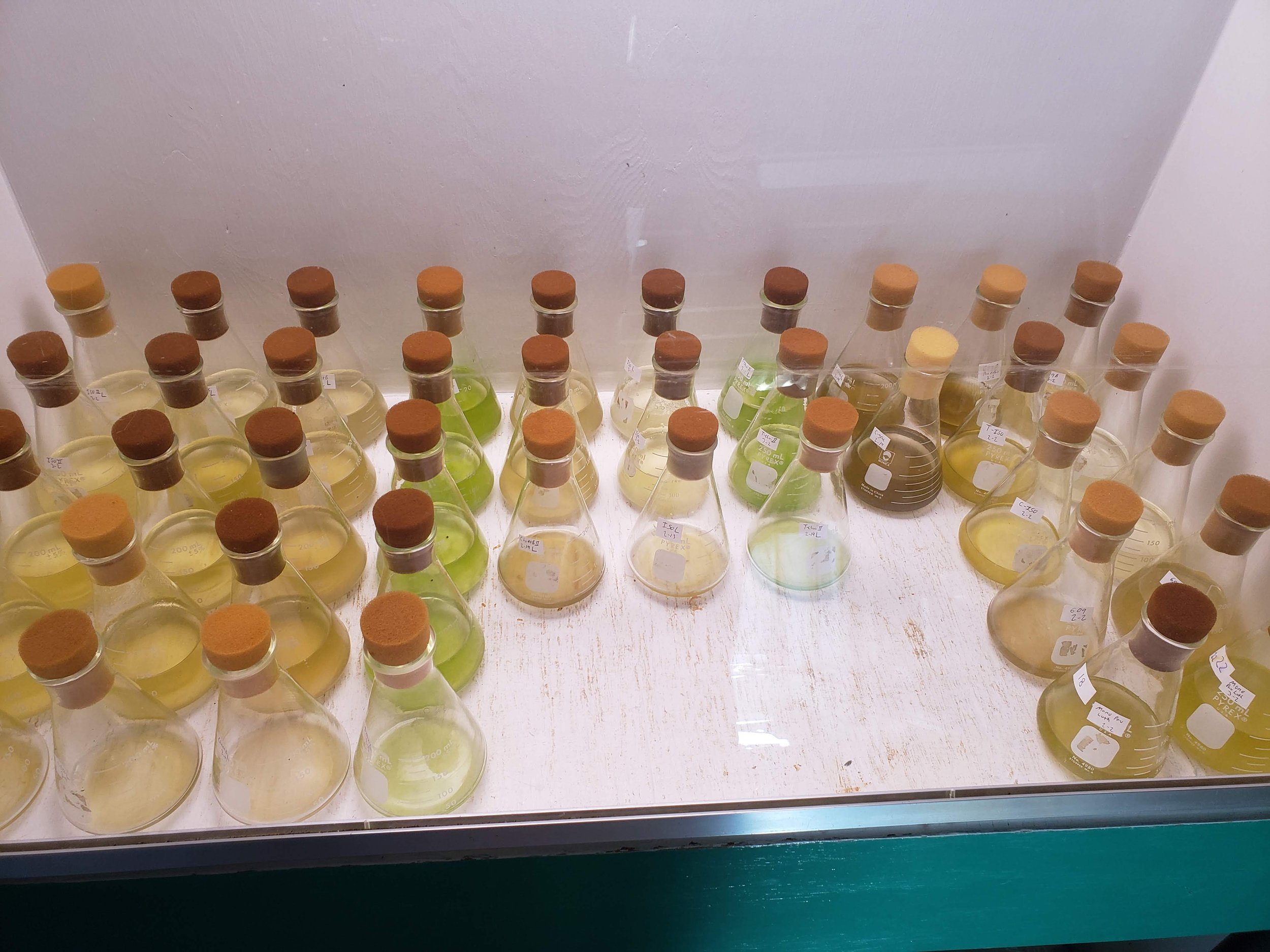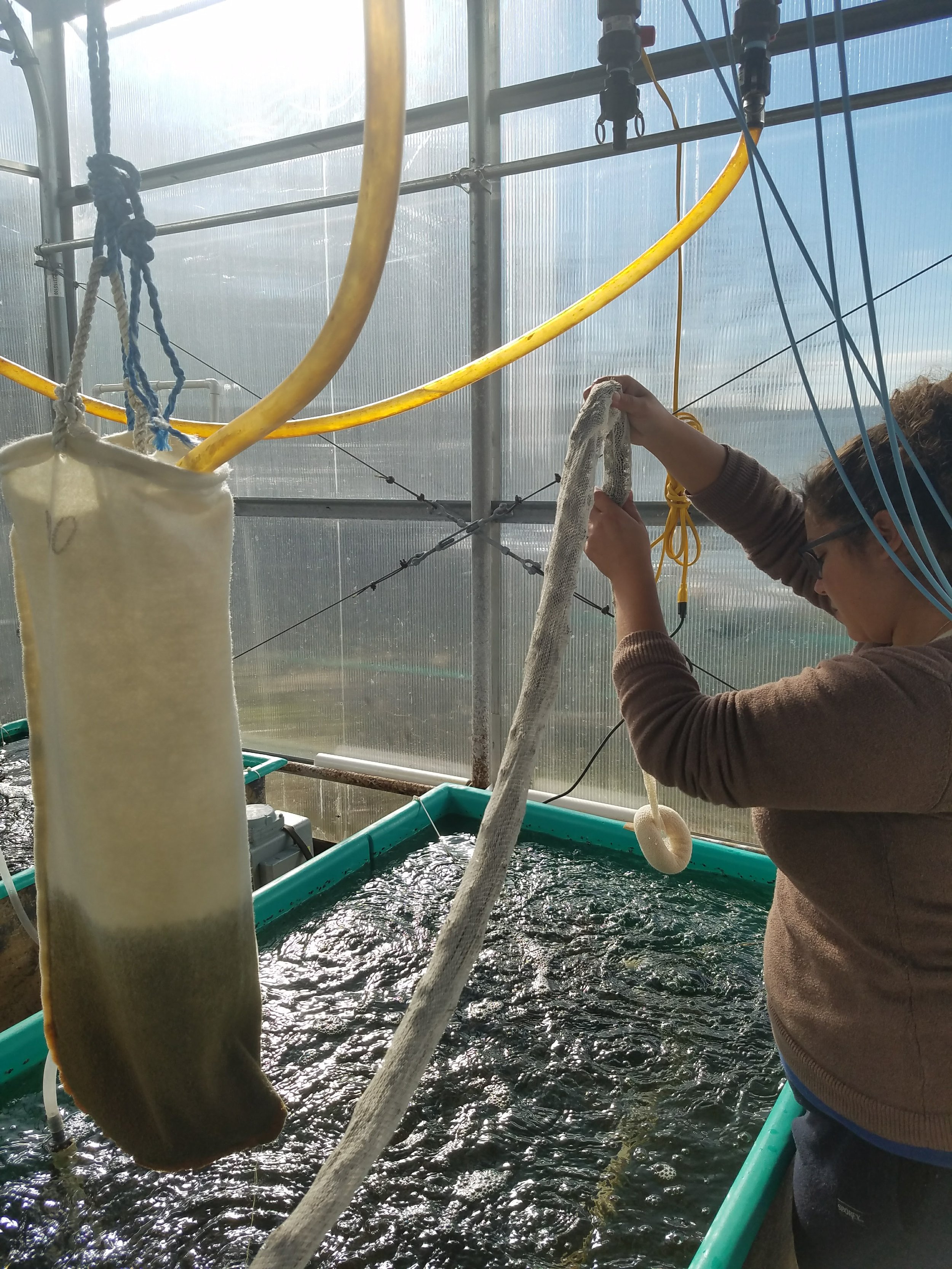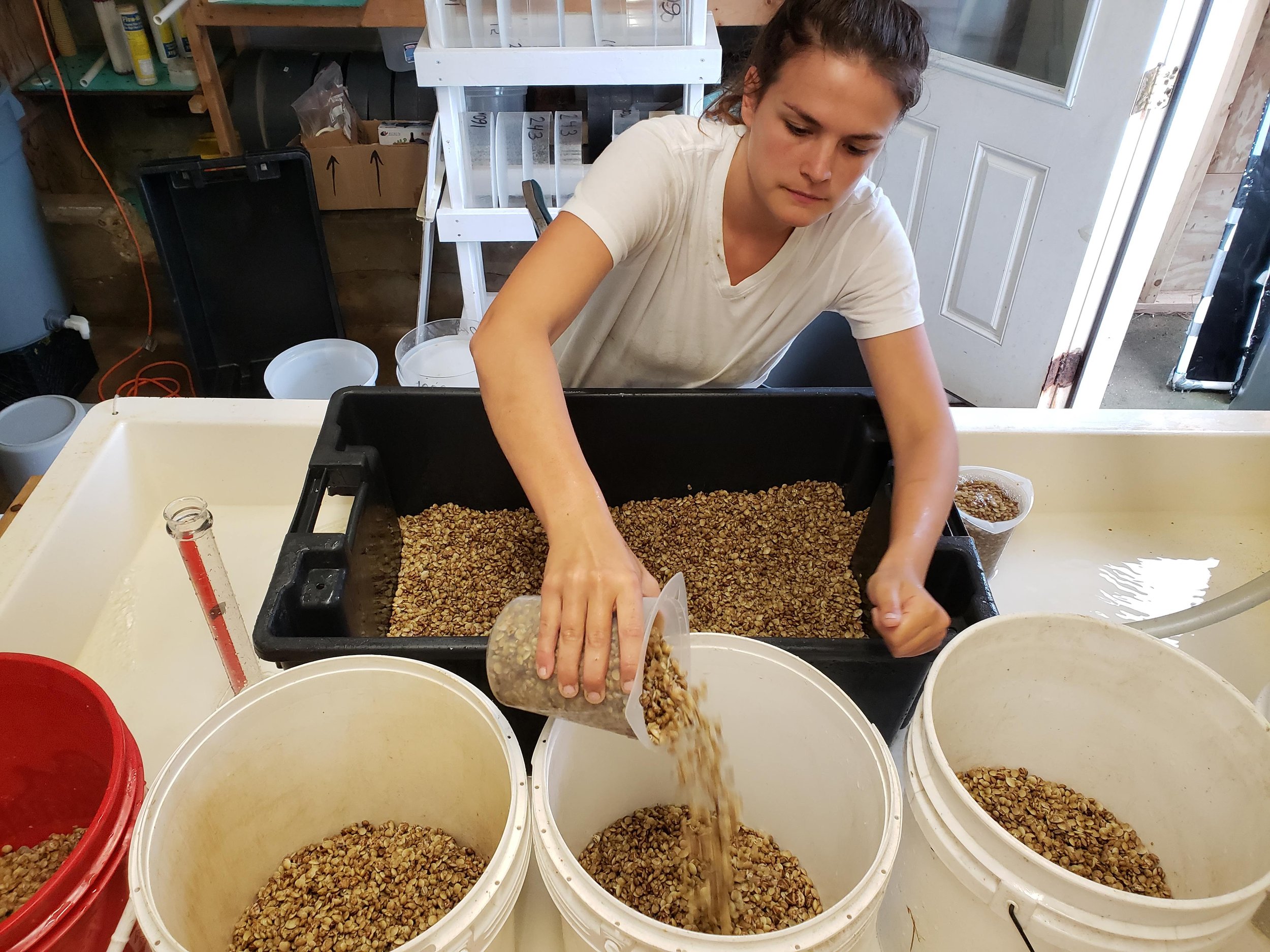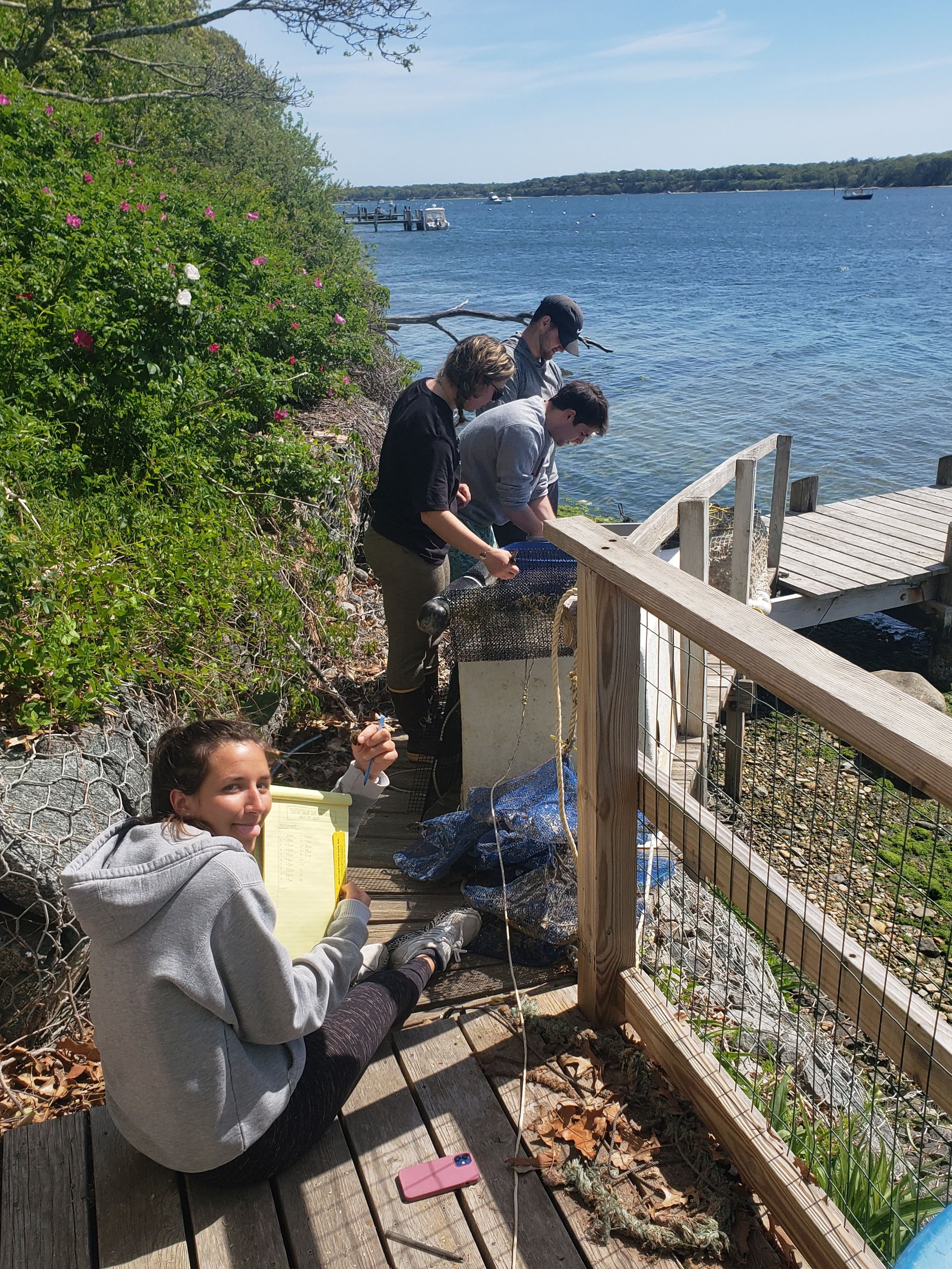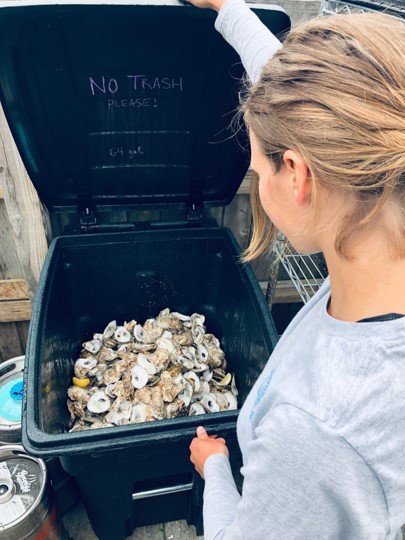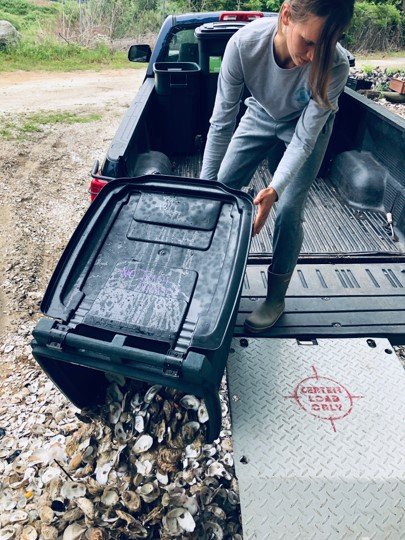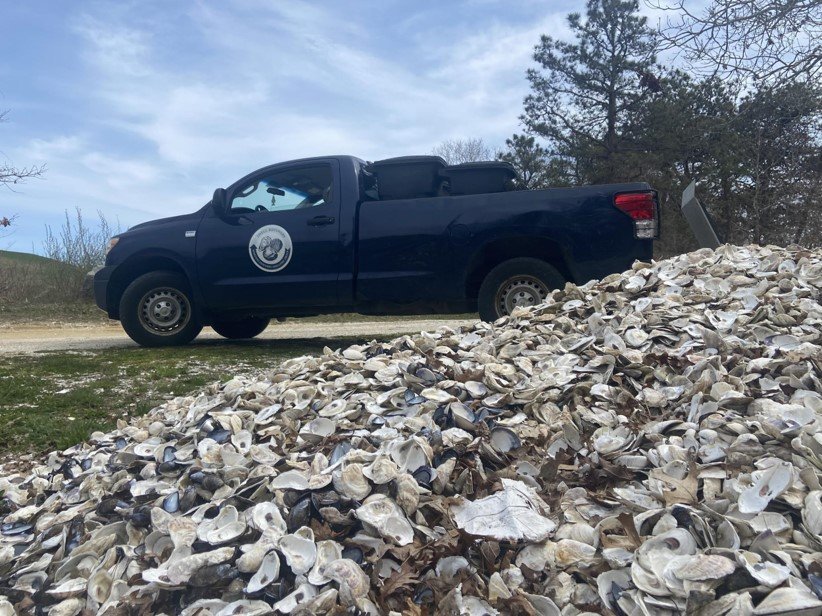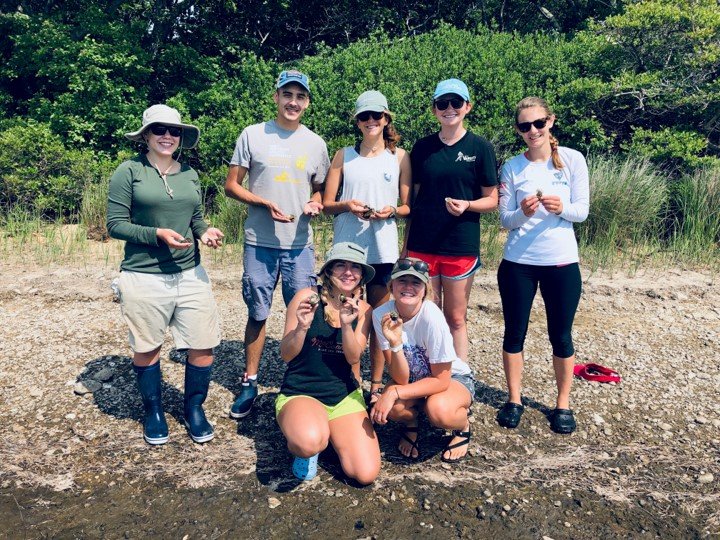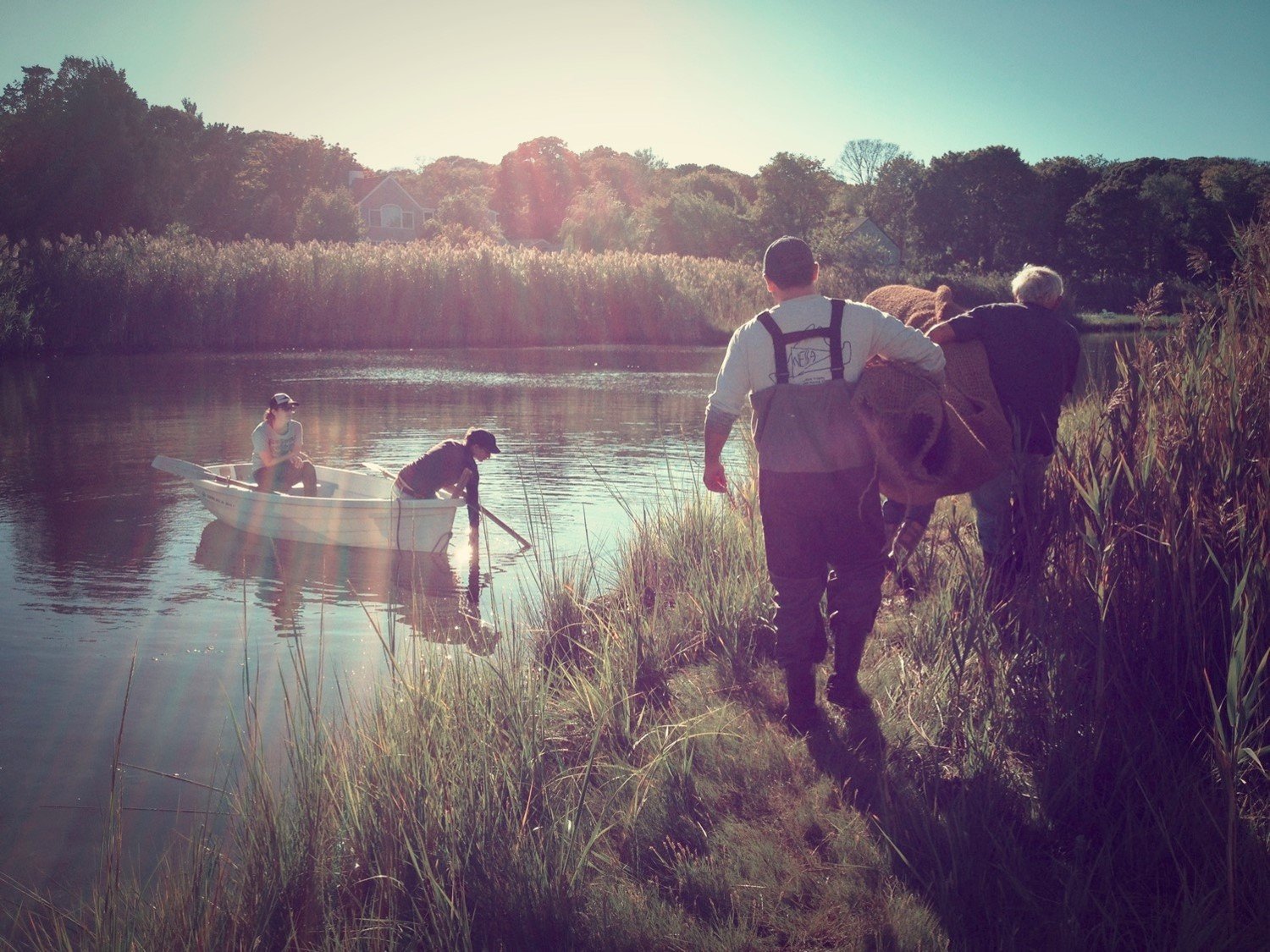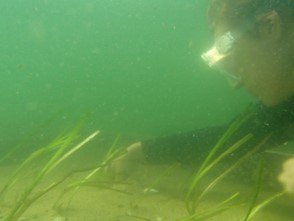Seasonal Employment Opportunities
Hatchery operations are in full swing April through October and require MVSG to bring on additional seasonal staff to help us with aquaculture, education, fieldwork, lab work, and restoration efforts. Unlike many universities, our facilities are eco-friendly, rural and rustic—making for an exciting and varied work environment that is steps away from the unique coastal habitat of Martha’s Vineyard. Due to our work with live animals—baby bivalves— staff must be interested in and have a working knowledge of scientific processes, be reliable, have good listening skills, be willing to work in a wet-lab environment, and enjoy caring for live animals. There are many learning opportunities for those considering a career in the sciences and we are open to supervising internships on a case-by-case basis. See descriptions below for examples of collaborative projects seasonal staff may be tasked with.
To apply, please send a one-page focused resume, a cover letter of intent, and contact information for three references to mvshellfishgroup@gmail.com by February 20th, 2026. Positions will be filled on a rolling basis.
Hatchery Assistants
help with the spawning, raising, cleaning, feeding and distribution of native shellfish species that we grow for local wildstock enhancement, which includes: quahogs, bay scallops and oysters. We grow juvenile shellfish in our three on-island hatchery facilities: the Vineyard Haven Solar Hatchery, John T. Hughes Hatchery in Oak Bluffs, and the Chappaquiddick Point nursery. All Assistants will have the opportunity to work on other MVSG Special Projects, including but not limited to Shell Recovery, Eelgrass Propagation and Restoration, Oyster Restoration, Ribbed Mussel Research and Education Initiatives.
MV Shell Recovery Partnership
We collect shells from restaurants, up to three times per week, and use them for oyster restoration and to combat coastal acidification in the Great Ponds. Shell Recovery is a vital element of MVSG’s mission. Shell Collectors may drive a long-bed truck (Toyota Tundra), picking up shells from restaurants, dumping the shell at our designated sites, and maintaining our associated shell recovery toters. Lifting of up to 30lbs. is required for this task.
Oyster & eelgrass Restoration
Both restoration projects have a field component and lab component. Oyster Restoration efforts take place in both Edgartown and Tisbury Great Ponds in collaboration with the town Shellfish Departments. In combination with propagation and monitoring assistance, oyster restoration responsibilities include collecting scheduled samples to be tested for diseases, assisting in conducting population surveys, tending to remote-set tanks, and other tasks. Staff interested in eelgrass restoration will assist in the collection of eelgrass seeds and shoots from beaches, docks and harbors, rehabilitating them in the hatchery, and replanting them back into the marine environment in proper areas to increase habitat for many juvenile marine species, including bay scallops. All fieldwork components will be under the direction of a Field Manager and may require boat safety, swimming, snorkeling, wading, and strong listening skills.


